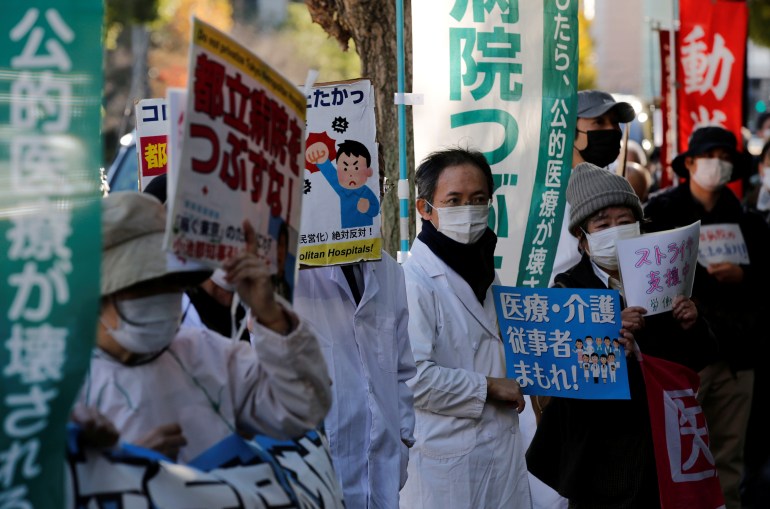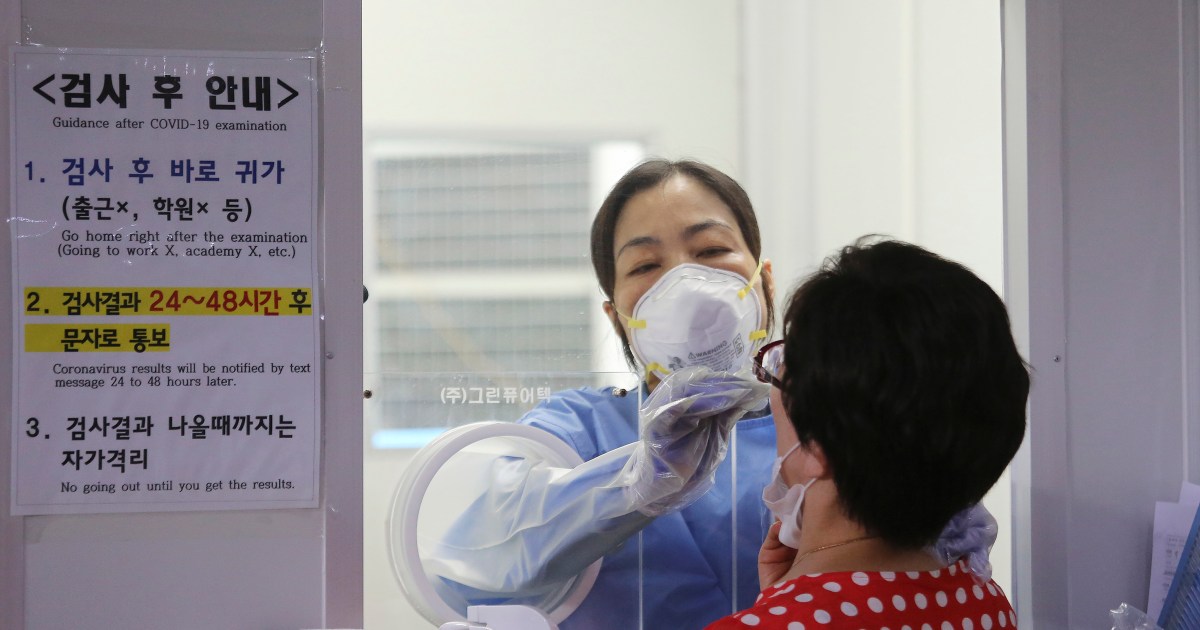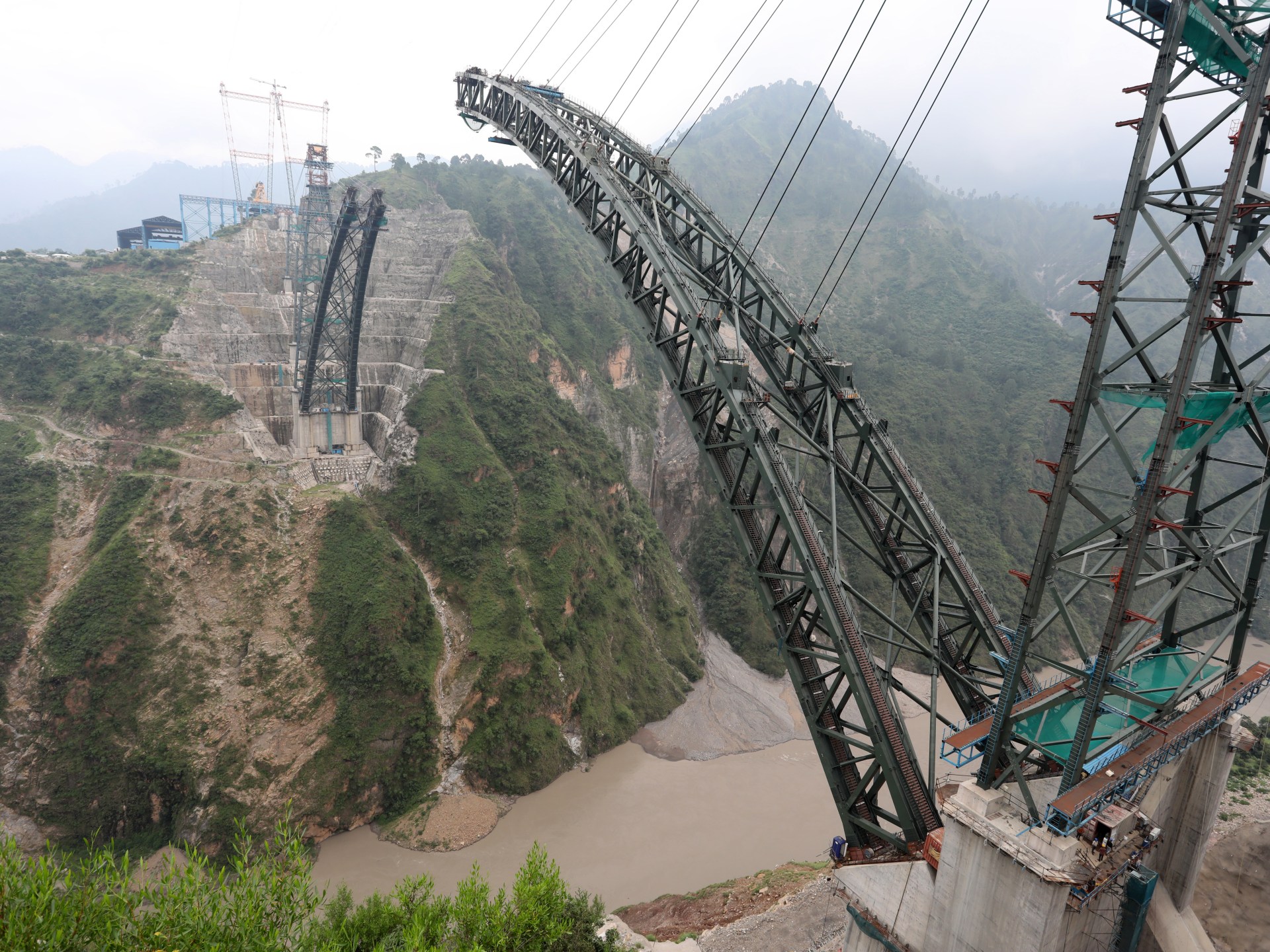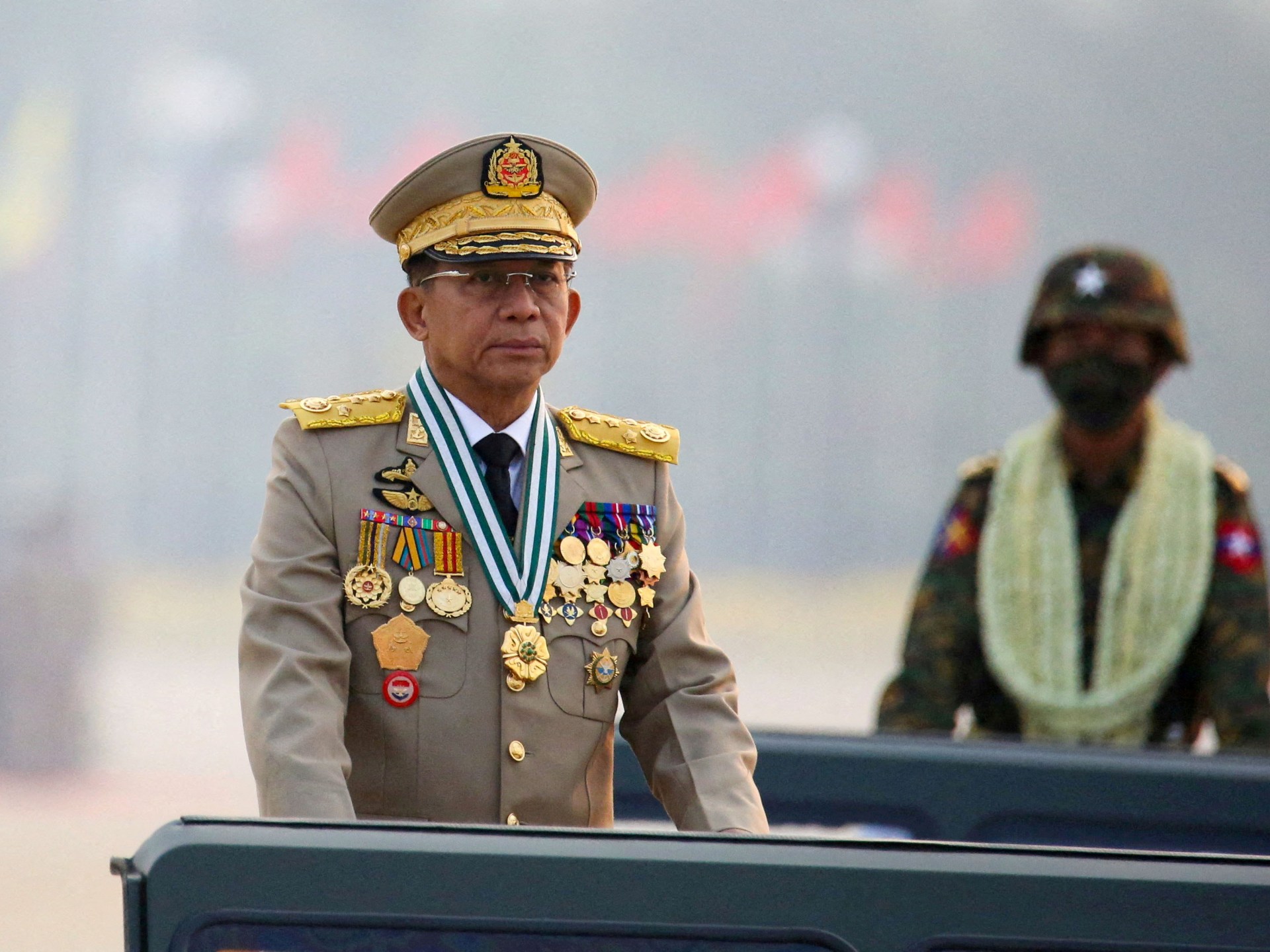South Korea, Japan to deploy military to combat COVID-19 | Japan
South Korea and Japan are deploying their militaries to assist healthcare workers in combatting COVID-19, with South Korean soldiers called in to expand coronavirus testing and tracing and Japanese military nurses tapped to fill a shortage of staff at hospitals in the hard-hit regions of Hokkaido and Osaka.
Moon Jae-in, the president of South Korea, on Monday ordered the government to mobilise “every available” resource to track infections and to expand testing by deploying the military and more people from the public service, presidential Blue House spokesman Chung Man-ho told a briefing.
The order came as the Korea Disease Control and Prevention Agency (KDCA) reported 615 new coronavirus cases as of midnight on Sunday, capping a month of triple-digit daily increases that have led to 8,311 confirmed patients in quarantine, the most ever.
Moon said testing sites should operate longer hours to allow workers to get tested at their convenience and more drive-through testing facilities should be set up, Chung said.
The positive rate for the latest batch of tests was about 4.2 percent, compared with the year’s average of 1.2 percent, according to the KDCA.
Monday’s total was down slightly from Sunday, when the agency reported 631 new cases, the largest daily tally since a peak in February and early March. Health authorities have said that if the current trend of cases continues, the hospital system could become overloaded.
‘Pandemic fatigue’
Al Jazeera’s Rob McBride, reporting from Seoul, called the situation in the country “concerning”.
“South Korea has been a pioneer of testing and tracing. But it seems the system here may not be good enough to deal with this surge,” he said, noting there were worries that people were flouting coronavirus curbs.
“Instead of meeting in nightclubs, people are holding private parties in hotel rooms which are difficult to control. So there is a concern that here in South Korea, where until now there’s been very good social compliance, that pandemic fatigue may be setting in,” he said.
South Korea has avoided lockdowns but used an intensive system of tracing, testing and quarantining to tamp down two earlier waves of infection. With this third wave, however, the government has faced increasing criticism as cases continue to rise despite measures such as mask mandates, curfews for restaurants and other businesses and restricted public transportation.
South Korean authorities will impose heightened social-distancing rules for the capital Seoul and surrounding areas beginning on Sunday. The curbs are the strongest virus curbs for the area and will last until at least the end of the month.
“South Korea has a five-tier system in place and these latest restrictions will put it at 2.5. This means further restrictions on restaurants, on gatherings indoors, also on transport, such as intercity trains, buses, and there will be a 50 percent cap on the number of passengers,” said McBride.
“There will be no spectators in sports venues once more and private companies will again be urged to have around a third of their workers working remotely from home.”
Since the pandemic started, South Korea has reported a total of 38,161 cases, with 549 deaths.
Hospitals ‘near collapse’
In Japan, chief government spokesman Katsunobu Kato said on Monday that Self-Defense Forces nurses were preparing to be deployed to Hokkaido and Osaka to help treat a surge in coronavirus infections as soon as the two prefecture governments request it.
In northern Hokkaido, there has been infection clusters at two hospitals in the city of Asahikawa, according to the NHK broadcaster. The Asahikawa Kosei Hospital has a total of 217 confirmed cases and the privately-run Yoshida Hospital has 184.
The latter sent a request to Hokkaido’s governor asking for military assistance, saying the city’s medical association “is overburdened and there is no alternative”, NHK reported.
 Protesters wearing masks, amid COVID-19 outbreak, hold banners with slogans at a rally supporting a hospital’s medical workers’ strike in front of the health ministry in Tokyo, Japan, December 4, 2020 [Kim Kyung-Hoon/ Reuters]
Protesters wearing masks, amid COVID-19 outbreak, hold banners with slogans at a rally supporting a hospital’s medical workers’ strike in front of the health ministry in Tokyo, Japan, December 4, 2020 [Kim Kyung-Hoon/ Reuters]Dr Yasutaka Kakinoki at the Asahikawa Kosei Hospital told the Reuters news agency the situation in the city of 340,000 people was “serious” and that the burgeoning caseload has brought its health system to “near collapse”.
In Osaka, where a local state of emergency has been declared over COVID-19, Governor Yoshimura Hirofumi asked the defence minister on Monday to send military nurses to treat severely ill coronavirus patients at a newly established medical facility, according to NHK. The facility has secured only 80 of the 150 nursing staff required.
As of Saturday, Osaka had recorded more than 300 new coronavirus cases for five consecutive days, according to the Japan Times daily. The percentage of hospital beds occupied by seriously ill patients hit 66 percent late last week and was expected to reach 70 percent early this week, the newspaper said.
Japan has reported around 163,000 cases of the novel coronavirus and 2,300 deaths.
The Japanese government’s handling of the latest surge in infections has prompted a fall in support for Japanese Prime Minister Yoshihide Suga’s cabinet, according to a weekend survey by the Kyodo News agency. Support for Suga’s cabinet dropped to 50.3 percent from 63.0 percent a month earlier, with the disapproval rating rising to 32.8 percent from 19.2 percent, the Kyodo survey showed.
The dissatisfaction was in part due to the government’s “Go To Travel” subsidy campaign, with some medical groups and experts saying tourism programme has fuelled the latest wave of coronavirus cases.
About 48 percent of respondents want the government to temporarily halt the programme, while a separate Yomiuri newspaper survey showed 57 percent want the campaign suspended.




